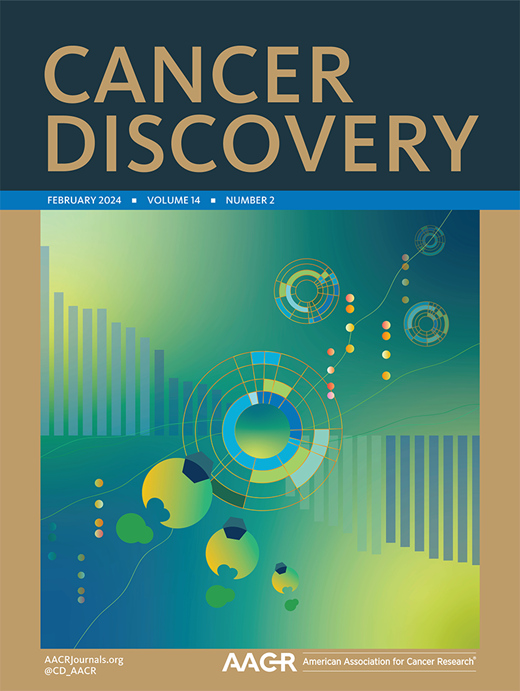Detection of cancers three years prior to diagnosis using plasma cell-free DNA.
IF 33.3
1区 医学
Q1 ONCOLOGY
引用次数: 0
Abstract
To explore how early can cancers be detected prior to clinical signs or symptoms, we assessed prospectively collected serial plasma samples from the Atherosclerosis Risk in Communities (ARIC) study, including 26 participants diagnosed with cancer and 26 matched controls. At the index time point, eight of these 52 participants scored positively with a multicancer early detection (MCED) test. All eight participants were diagnosed with cancer within 4 months after blood collection. In six of these 8 participants, we were able to assess an earlier plasma sample collected 3.1 to 3.5 years prior to clinical diagnosis. In four of these six participants, the same mutations detected by the MCED test could be identified, but at 8.6 to 79-fold lower mutant allele fractions. These results demonstrate that it is possible to detect circulating tumor DNA more than three years prior to clinical diagnosis, and provide benchmark sensitivities required for this purpose.在诊断前三年使用无浆细胞DNA检测癌症。
为了探索癌症在临床症状或体征之前的早期检测,我们前瞻性地评估了从社区动脉粥样硬化风险(ARIC)研究中收集的一系列血浆样本,包括26名诊断为癌症的参与者和26名匹配的对照组。在指标时间点,这52名参与者中有8人在多癌早期检测(MCED)测试中得分为阳性。所有8名参与者在采集血液后的4个月内都被诊断出患有癌症。在这8名参与者中,我们能够评估在临床诊断前3.1至3.5年收集的早期血浆样本。在这六名参与者中的四名中,可以识别出MCED测试检测到的相同突变,但突变等位基因分数低8.6至79倍。这些结果表明,在临床诊断前三年以上检测循环肿瘤DNA是可能的,并为此目的提供所需的基准灵敏度。
本文章由计算机程序翻译,如有差异,请以英文原文为准。
求助全文
约1分钟内获得全文
求助全文
来源期刊

Cancer discovery
ONCOLOGY-
CiteScore
22.90
自引率
1.40%
发文量
838
审稿时长
6-12 weeks
期刊介绍:
Cancer Discovery publishes high-impact, peer-reviewed articles detailing significant advances in both research and clinical trials. Serving as a premier cancer information resource, the journal also features Review Articles, Perspectives, Commentaries, News stories, and Research Watch summaries to keep readers abreast of the latest findings in the field. Covering a wide range of topics, from laboratory research to clinical trials and epidemiologic studies, Cancer Discovery spans the entire spectrum of cancer research and medicine.
 求助内容:
求助内容: 应助结果提醒方式:
应助结果提醒方式:


